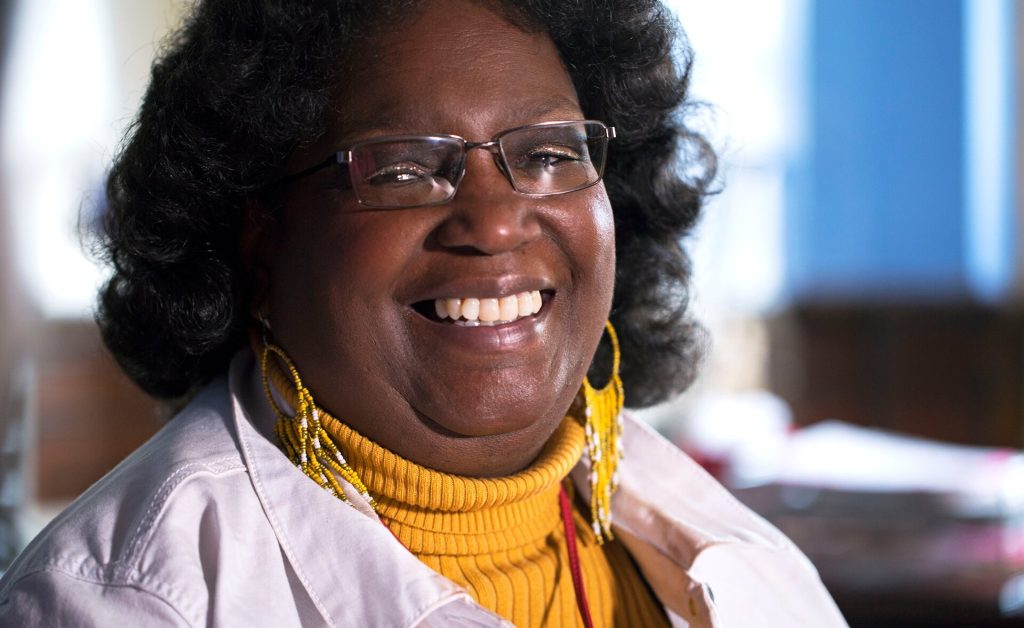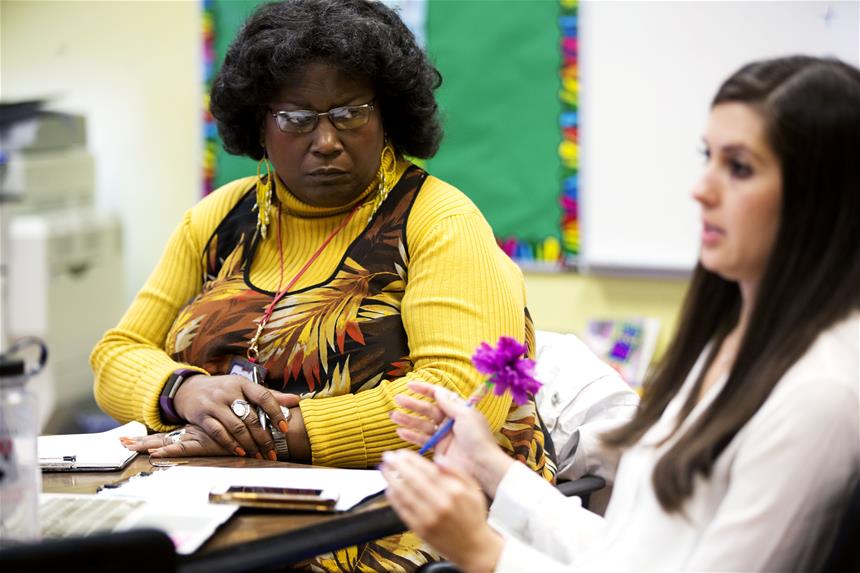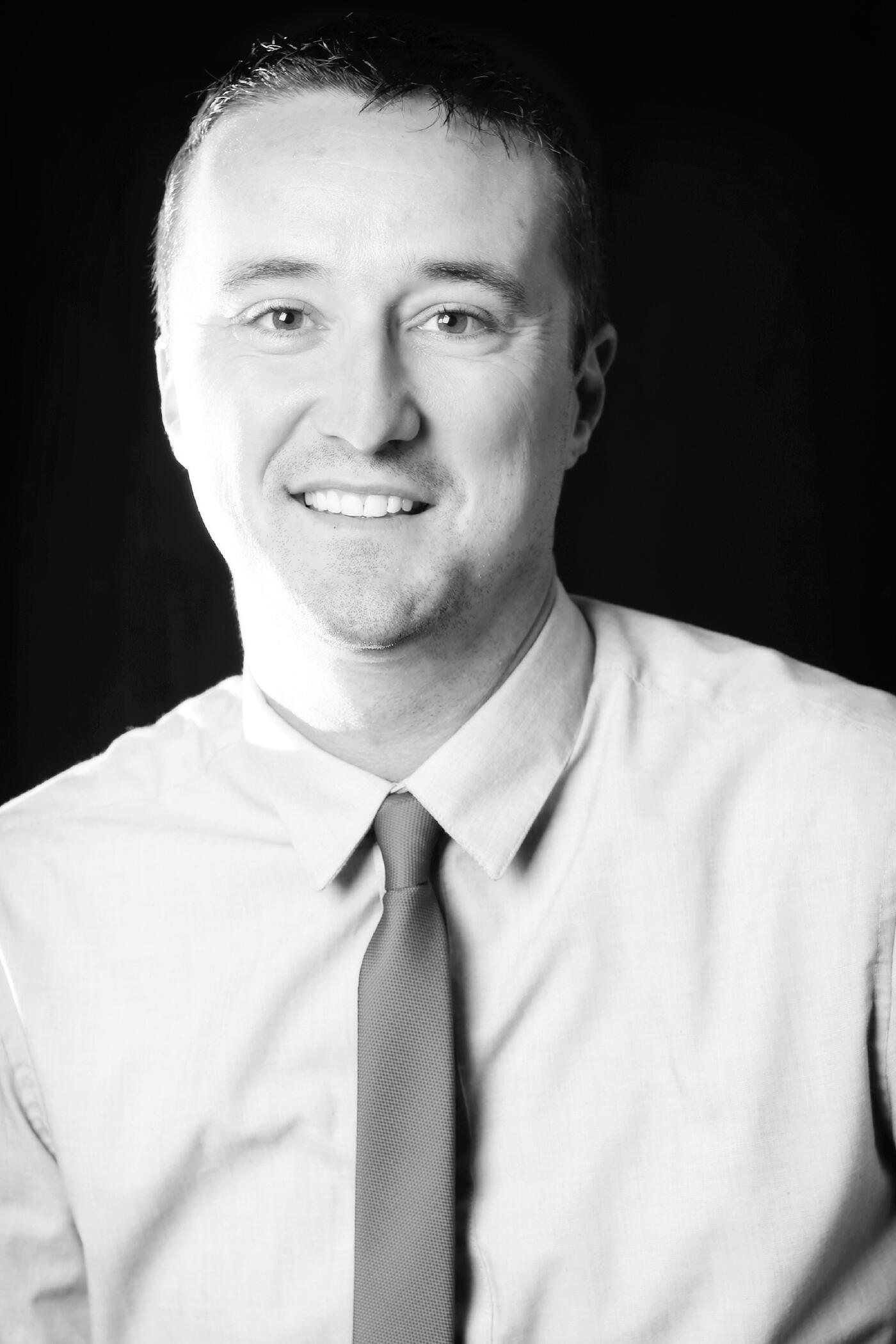
Janet James-Benson is killin’ it.
Or, at least, that’s what her youngest son told her during a recent car ride home. “I said, what do you mean ‘I’m killing it’?” the doctoral student recalls with a laugh. “You know I don’t know all the millennial language. He said, ‘You got a bachelor’s in nursing, a master’s in health services administration, [and] a master’s in education. Now, you’re about to get a doctorate in education? Mom, you killin’ it!’ I said, ‘If I can motivate you to keep striving to be the best you can be, then I guess I’m killing it.’”
Janet knows all too well how important that motivation can be. After all, she wasn’t always the scholar that she is today.
Take, for example, her path from undergrad: Janet started out at a city college, and admittedly wasn’t as focused as she should have been the first time. The second time? She fell in love – and fell behind. Janet’s nursing school only allowed students to apply twice – her chances were up.
Thankfully, time — and the universe — are inclined to forgiveness. After taking some time off, she refocused and applied to DePaul University. Three years later, she walked out with her bachelor’s degree in nursing. “What got me through,” Janet says, “was the encouragement along the way. I had people telling me, ‘Don’t give up. You’re meant to be a nurse.’”
That message stayed with her, carrying her for the next three decades as she worked in and out of a tertiary care center and Chicago Public Schools.
She continued to advance, earning a master’s in healthcare administration from the University of St. Francis as well as both a master’s in educational leadership and, soon, a doctorate in leadership from American College of Education.
Recently, we joined the doctoral candidate on a call to discuss her journey, the significance of this moment, and what it means to own your path and everything you’ve learned from it.
American College of Education: As an area-certified school nurse, how did the programming here fit into your career goals?
Janet James-Benson (JJB): One of the biggest changes has been the fact that we have more and more students coming to school with chronic illnesses — the resource needs have grown tremendously and unfortunately, what has also grown is the inequity for resource allocation. I’ve also seen a number of nurses coming from traditional healthcare arenas or facilities, ill-prepared to deal with the reality of life as a school nurse. As a school nurse, you’re really a trauma nurse. You never know what’s going to walk into the office, and you need to be prepared.
Obviously, my education with DePaul gave me my clinical foundation.
The [ACE] M.Ed. was so that I could obtain the Type 75 school administrator certificate, because I did and still do have in mind the goal of an administrative position with Chicago Public Schools. To hold that position, you need that certificate. I got it some years ago, so that’s still in the back of my mind as a possibility.
Having this doctorate in education as well as my clinical background will give me opportunities to do healthcare coordination consulting. I know that the American Academy of Pediatrics values and hires school nurse consultants, and I was speaking to a friend of mine at Rush Medical Center who confirmed there’s a gap between what happens to kids after they’ve had a long hospital stay for complex medical conditions and when they go back to school. There needs to be a bridge between hospital and school. Having this doctorate not only lends me the credibility to be that bridge, but it’s given me the tools to interface and dialogue with stakeholders on the nursing side and school administrator side and negotiate competing needs.

ACE: Less than two percent of adults in the U.S. have a doctoral degree. Knowing that, what does this moment mean for you?
JJB: Right now, I have a little apprehension, because you just never know how long it’s going to take. I’ve talked to folks who have their doctorates, and I keep hearing those horror stories about how your paper gets ripped to shreds and, like most human beings, I don’t like rejection, but I figure that it’s going to grow me up.
I do have moments where I get a little sad because I wish my parents were still alive, you know, to see that this little black girl who came out [of] the projects will one day be called ‘doctor.’ I think they would have been really, really proud. I know that I am setting an example for my son.
I just don’t want any of our kids, especially those that look like us, to think that they can’t do it. I tell people all the time, if you’re thinking about going to school, go back to school. I started this doctorate at 57. In one of my classes, one of the students was an 80-year-old man. Don’t ever say what you can’t do. If God gives you a vision, He’ll give you the provision.
ACE: We talk a lot about giving back at ACE, specifically in the context of sharing the knowledge that you gain. Did your education with ACE empower you to empower others in any way?
JJB: I think it has. I feel more confident in my ability to motivate people to consider tackling those things they thought were impossible or out-of-reach or unrealistic, because I truly believe that anything is possible. I believe that we each are here on Earth for reasons and once we’ve been blessed, we are required to bless somebody else. So, if my blessing to somebody else is to be a motivator, then let me have it, because people motivated me. People encouraged me.
Learn more about the M.Ed. in Educational Leadership program at American College of Education.

